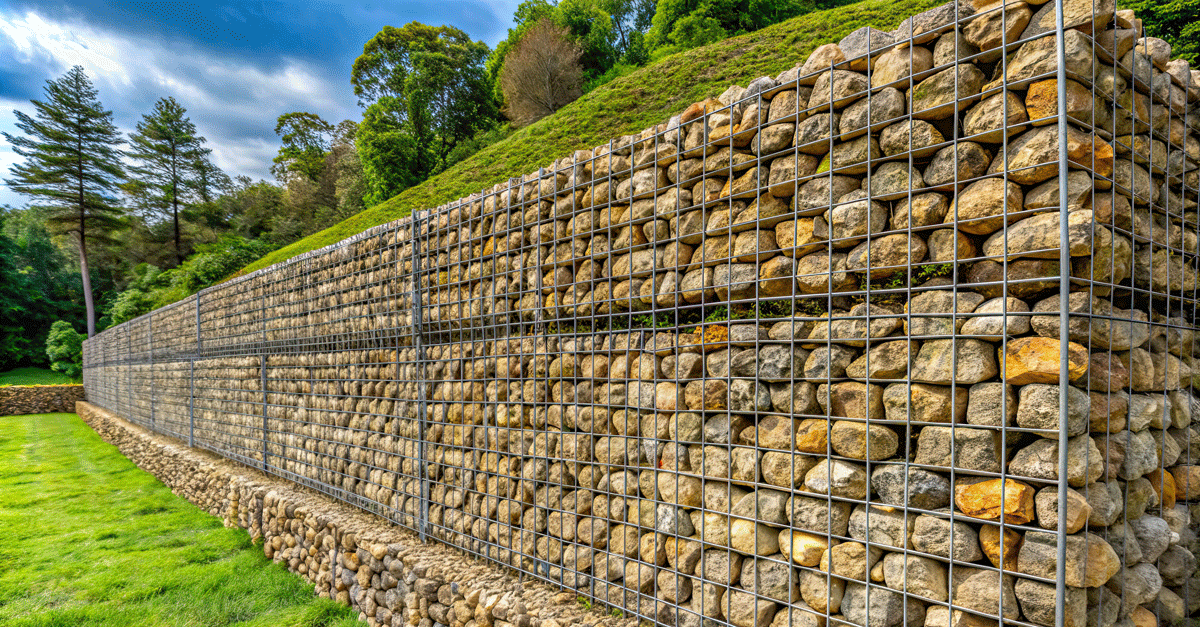
Derived from the Italian word “gabbione”, meaning “big cage,” gabion stones are a staple in the construction and landscaping industries. These robust, durable stones are primarily used to fill gabions baskets, creating structures that combine functionality with aesthetic appeal. Whether for erosion control, retaining walls, or decorative landscape features, gabion stone offer a versatile solutions. In this article, we will explore what gabion stones are, their various applications, and the numerous benefits they provide to construction and environmental project.
What Are Gabion Stones?
They are large, robust stones placed in wire mesh cages, known as gabion baskets, to form various structures. These stones are chosen for their strength and resistance to weathering.
- Size and Material: Typically ranging from 100mm – 200mm in diameter, gabion stones can be made from a variety of materials including Limestone, Granite or Sandstone.
- Characteristics: Selected for their durability, these stones resist weathering and maintain their integrity over time. They often last anywhere between 20 years and 120 years.
Applications of Gabion Stones
They are used in a variety of construction and landscaping projects:
- Retaining Walls: Gabion walls are used to prevent soil erosion and stabilise slopes.
- Erosion Control: These stones help protect shorelines, riverbanks, and other vulnerable areas from erosion.
- Landscaping: Gabion stones can be used to create decorative features, such as garden walls or water features.
- Noise Barriers: They are also effective in constructing noise barriers along highways and railways.
Benefits of Gabion Stones
- Erosion Control: Effective in preventing soil erosion by stabilising the ground and dissipating the energy of flowing water.
- Durability: Their resistance to weathering and heavy loads ensure long-term stability and effectiveness.
- Aesthetics: Gabion structures can be both functional and visually appealing, blending seamlessly with natural landscape.
Choosing Gabion Stone for Your Project
- Project Requirements: Determine whether the primary need is structural support, erosion control, or aesthetic enhancement.
- Site Conditions: Assess environmental factors such as water flow, soil type, and weather exposure.
- Material Availability: Opt for locally sourced materials to minimise costs and environmental impact.
Installation Tips
- Site Preparation: Clear debris and grade the area to the desired slope.
- Foundation: Lay a solid foundation of compacted gravel to ensure stability.
- Placement: Fill gabion baskets layer by layer, ensuring even distribution of stones.
- Maintenance: Regularly inspect gabion structures for signs of displacement or damage and make necessary repairs.
Gabions stones are essential for creating durable, versatile, and aesthetically please structures in construction and landscaping, By understanding their properties and applications, you can make informed decisions to ensure the success of your projects.
If you’re looking for aggregates, GMAT are a trusted national provider of construction materials across the UK. Get in touch by email info@gmat.co.uk or calling 0161 647 7409
